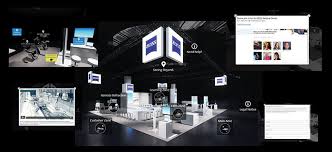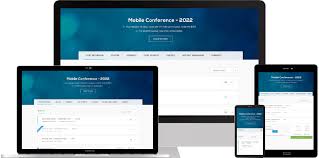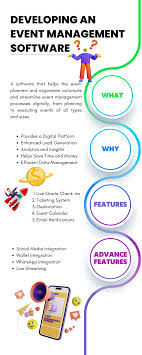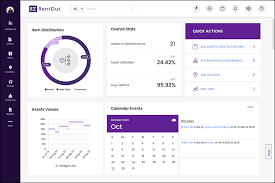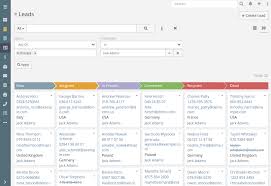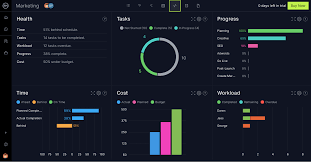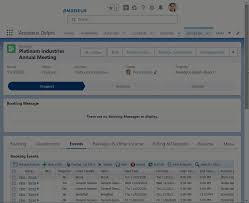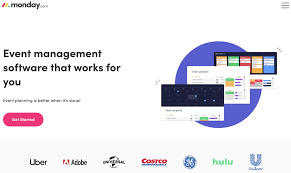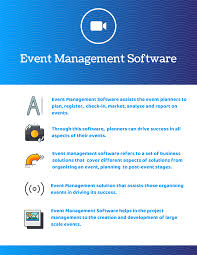Virtual Trade Show Examples
In today’s digital age, virtual trade shows have become increasingly popular as a cost-effective and efficient way for businesses to showcase their products and services to a global audience. Here are some examples of successful virtual trade shows:
CES Virtual Experience
The Consumer Electronics Show (CES) is one of the largest tech trade shows in the world. In 2021, due to the pandemic, CES went virtual with an interactive platform that allowed exhibitors to showcase their latest innovations through virtual booths, product demos, and live presentations.
Adobe Summit Online
Adobe Summit is an annual conference that brings together marketing and tech professionals. In 2020, Adobe transformed its physical event into a virtual experience, offering keynote speakers, breakout sessions, and networking opportunities through an online platform.
E3 Digital Expo
The Electronic Entertainment Expo (E3) is a major event for the gaming industry. In 2021, E3 hosted a digital expo featuring virtual booths from leading game developers, live streams of game announcements, and interactive experiences for attendees.
These examples demonstrate how virtual trade shows can provide engaging and immersive experiences for participants while reaching a wider audience beyond geographical limitations. As technology continues to advance, virtual trade shows are likely to become even more prevalent in the business world.
Top 8 Frequently Asked Questions About Virtual Trade Shows
- How to set up a virtual trade show?
- How to do a virtual trade show?
- How much does a virtual trade show cost?
- What is a virtual trade show?
- What are trade show events examples?
- Are virtual trade shows worth it?
- How do I set up a virtual trade show booth?
- What is the meaning of virtual trade show?
How to set up a virtual trade show?
Setting up a virtual trade show involves several key steps to ensure a successful and engaging event. First, you need to choose a reliable virtual trade show platform that offers features such as virtual booths, live streaming capabilities, networking tools, and analytics. Next, you’ll need to design and customize your virtual event space with branding elements, interactive content, and exhibitor information. Promoting your virtual trade show through various channels like social media, email marketing, and industry partnerships is crucial to attract attendees. On the day of the event, make sure to provide technical support for exhibitors and attendees to troubleshoot any issues that may arise. Post-event follow-up and analysis of attendee engagement will help you evaluate the success of your virtual trade show and identify areas for improvement in future events.
How to do a virtual trade show?
To host a successful virtual trade show, there are several key steps to consider. First, you will need to choose a reliable virtual event platform that offers features such as virtual booths, live streaming capabilities, networking tools, and interactive elements. Next, create a detailed plan outlining the event schedule, exhibitors, speakers, and promotional strategies. Design engaging virtual booths for exhibitors to showcase their products or services effectively. Promote the event through various channels to attract attendees and provide them with easy access to the virtual environment. During the event, ensure seamless navigation for participants and offer opportunities for networking and interaction. Finally, gather feedback post-event to evaluate its success and identify areas for improvement in future virtual trade shows.
How much does a virtual trade show cost?
When considering the cost of a virtual trade show, it can vary depending on several factors such as the platform used, the level of customization required, the number of attendees, and additional features like virtual booths, networking tools, and analytics. Some virtual trade show platforms offer pricing packages based on the size and complexity of the event, while others may charge per attendee or offer a flat fee for access to certain features. It’s essential for businesses to carefully evaluate their budget and needs to choose a virtual trade show solution that aligns with their goals and resources.
What is a virtual trade show?
A virtual trade show is an online event that replicates the experience of a traditional trade show in a digital format. It allows exhibitors to showcase their products and services, interact with attendees through live chats and webinars, and generate leads—all within a virtual environment. Participants can explore virtual booths, attend presentations and demos, network with other attendees, and access resources just like they would at an in-person trade show. Virtual trade shows offer a cost-effective and convenient alternative to physical events, enabling businesses to reach a broader audience while saving on travel expenses and logistical challenges.
What are trade show events examples?
Trade show events encompass a wide range of industries and themes, each offering unique opportunities for businesses to showcase their products and services. Some common examples of trade show events include technology expos like CES (Consumer Electronics Show), industry-specific events such as the National Restaurant Association Show, fashion trade shows like MAGIC in Las Vegas, and automotive exhibitions like the North American International Auto Show. These trade show examples demonstrate the diversity and significance of such events in connecting businesses with potential customers, partners, and industry trends.
Are virtual trade shows worth it?
When considering the value of virtual trade shows, it’s essential to weigh the benefits they offer against the investment required. Virtual trade shows can be worth it for many businesses due to their cost-effectiveness, accessibility to a global audience, and ability to generate leads and networking opportunities. They also provide a platform for showcasing products and services in a dynamic and interactive way. By leveraging technology, virtual trade shows can offer unique experiences that may not be possible with traditional in-person events. Ultimately, the decision on whether virtual trade shows are worth it depends on the specific goals and objectives of each business.
How do I set up a virtual trade show booth?
Setting up a virtual trade show booth involves several key steps to ensure a successful online presence. First, you need to choose a virtual trade show platform that suits your needs and budget. Then, design your booth with engaging visuals, product displays, videos, and interactive elements to attract visitors. Make sure to provide relevant information about your products or services and include options for attendees to chat with representatives or schedule meetings. Promote your virtual booth through social media, email marketing, and other channels to drive traffic. Finally, track metrics such as visitor engagement and leads generated to evaluate the effectiveness of your virtual trade show booth setup.
What is the meaning of virtual trade show?
A virtual trade show is an online event that replicates the experience of a traditional trade show in a digital format. It allows exhibitors to showcase their products and services, interact with attendees through virtual booths, presentations, and networking opportunities. Participants can access the virtual trade show from anywhere in the world using their computers or mobile devices, eliminating the need for physical attendance. Virtual trade shows provide a cost-effective and convenient way for businesses to connect with a global audience and generate leads without the constraints of physical events.

